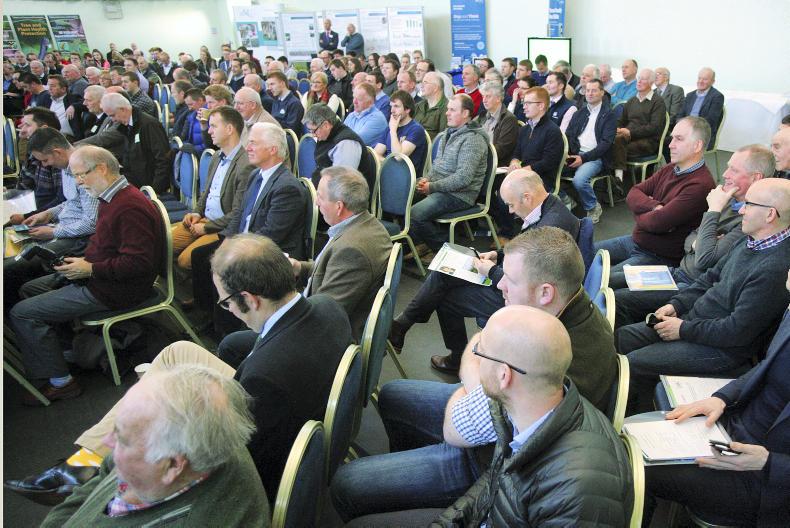The top 25% of arable farmers are in a good position to cope with any changes that might come as a result of Brexit, but those who fail to achieve high margins per hectare could face a difficult future.
That was the main message from keynote speaker Martin Grantley-Smith at last week’s arable conference organised by the Ulster Arable Society, the Ulster Farmers’ Union and CAFRE.
Grantley-Smith, from the Agriculture and Horticulture Development Board (AHDB), based in England, mainly focused on the results of three Brexit scenarios analysed as part of an AHDB market intelligence report.
The first scenario is essentially a maintenance of the status quo, with direct payments continuing, a comprehensive free-trade agreement done with the EU and trade with the rest of the world conducted under World Trade Organisation (WTO) rules. In this scenario, farm incomes on arable farms are down, but only slightly.
The second scenario assumes that direct payments are gone, with some increased funding for agri-environment schemes. However, there is no deal with the EU, meaning that the UK must trade with everyone under WTO rules. To keep food prices under control, the UK decides to allow imports in tariff free. The result is devastating for arable farmers, with incomes down 81%.
An even worse outcome would result under the third scenario, which is based on the same assumptions as scenario two, but with less funds going to agri-environment. This results in negative average farm business incomes in the arable sector.
“The top 25% in all circumstances remain profitable. However, under the analysis the loss of direct payments has a bigger effect on farms than future trading relationships. New export opportunities from Brexit won’t make that much difference,” said Grantley-Smith.
He challenged farmers in the audience to know their costs of production, to take time to review their businesses and work out if they can survive without direct payments.
“Do you have a plan? What skills will the business need to get money from environmental management or farm diversification – that is probably where the money is in the future,” he said.
He also pointed out that UK farmers cannot compete in world markets, where Russia can produce wheat for £60/t, and the Argentinians at £77/t.
It means that the sector should concentrate on servicing a home market post-Brexit, and building on local supply chains.
A major customer for British grain is the poultry sector, but while consumers might want to buy local poultry, they probably don’t care if the poultry were fed UK-produced grain or not. “We have a job to do to ensure that supply chains use our grains,” concluded Grantley-Smith.






 This is a subscriber-only article
This is a subscriber-only article










SHARING OPTIONS: